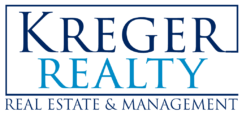One of the most common questions that I receive as a North Carolina Bankruptcy Lawyer is whether my client will be able to keep a certain piece of property if they file for Chapter 7 Bankruptcy protection. The answer to this question is largely dictated by North Carolina exemption laws. As we discussed in an earlier post, in exchange for receiving a discharge of the debtor’s unsecured debts in a Chapter 7 Bankruptcy, the Bankruptcy Trustee will collect the nonexempt property of the debtor and sell it in an attempt to pay off the debtor’s creditors. However, the majority of Bankruptcy filings for Greensboro and Durham Chapter 7 debtors are able to keep their property and still receive a discharge of their debts. This is because all of the debtor’s property is exempt from collection by the Bankruptcy Trustee.
In North Carolina, an individual Chapter 7 debtor, who is a resident of North Carolina, is entitled to claim certain values of specific property as exempt from the Bankruptcy estate. North Carolina exemptions are not available for business entities filing bankruptcy. Also, if the debtor did not live in North Carolina for the 730 days prior to the bankruptcy filing date and did not reside in North Carolina for the larger portion of the 180 days before the filing date, then North Carolina exemptions will not be available. Assuming that the debtor is an individual and a North Carolina resident, then the debtor is entitled to exempt property from the Bankruptcy Estate, this is done on Form 91C of the Bankruptcy petition.
North Carolina General Statute Section 1C-1601, dictates how much and what type of property can be exempted. If you are able to exempt the full value of your property as described below, this means that you will keep the full value of that specific property and still receive a discharge of your debts in a Chapter 7 Bankruptcy.
• Residence – A single debtor can exempt $35,000 in property that the debtor or dependant of the debtor uses as a residence. If a husband and wife are jointly filing for Chapter 7 protection and own a home as husband and wife, then $70,000 of equity in the home can be exempted. Furthermore, if a debtor is now a widow and is at least 65 years old, then he or she can exempt $60,000 of equity in the residence so long as the property was previously owed at husband and wife and the former co-owner is deceased.
• Wildcard — A debtor may exempt up to $5,000 in value of any unused exemption amount to which the debtor is entitled for as a residence. This means that if you do not claim all of the $35,000 that is available to you to exempt in a owned residence (ie, you do not own a home or you do not have $35,000 in equity in your home), then you can claim the remaining value of the $35,000 (up to $5,000) in any property that you would like to claim. Many people use this exemption to claim the funds in their bank accounts.
• Vehicles – A debtor may keep up to $3,500 in equity in one vehicle. This means that if your car is paid in full and it is worth less than $3,501.00, then you get to keep the entire car.
• Household Goods – A debtor may exempt $5,000 plus an additional $1,000 for each dependant of the debtor (not to exceed $4,000) in value of furniture, household goods, clothes, appliances, books, animals, and musical instruments so long as the property is used primarily for the personal or family used by the debtor or the debtor’s dependant.
• Tools of the Trade – A debtor may keep up to $2,000 in any tools of the debtor’s trade or the trade of the debtor’s dependant.
• Life Insurance – A debtor may claim the life insurance policies whose sole beneficiaries are the debtor’s spouse and/or the debtor’s children as exempt.
• Health Aids – A debtor may exempt all professionally prescribed home health aids for the debtor or a dependant of the debtor.
• Personal Injury Awards – a debtor may exempt compensation of personal injury, including private disability policies, or compensation for the death of a person whom the debtor was dependant for support.
• Retirement Accounts – A debtor can keep his or her entire retirement account so long as the account if a “qualified account” under the Internal Revenue Service Code.
• College Savings Plans – A debtor may exempt up to $25,000 in a qualified savings plan (such as a 529 Plan) for a child of the debtor, except that any funds that placed into the account not in the ordinary course of the debtor’s financial affairs with tithe the previous 12 months.
• Domestic Support Payments – A debtor may exclude alimony, post-separation support, and child support payment that has been received or to which the debtor is entitled, to the extent that the payments are reasonably necessary for the support of the debtor or the debtor’s dependant.
If you have any questions about what property that you may be able to keep should you file for Bankruptcy, please feel free to contact our Durham Bankruptcy Attorneys or Greensboro Bankruptcy Attorneys, via the Free Consultation Contact Form to the right, by email at info@kregerthacker.com or by phone at 888-820-5885.

